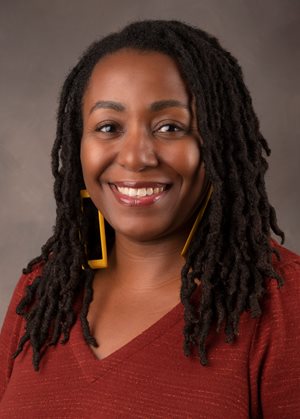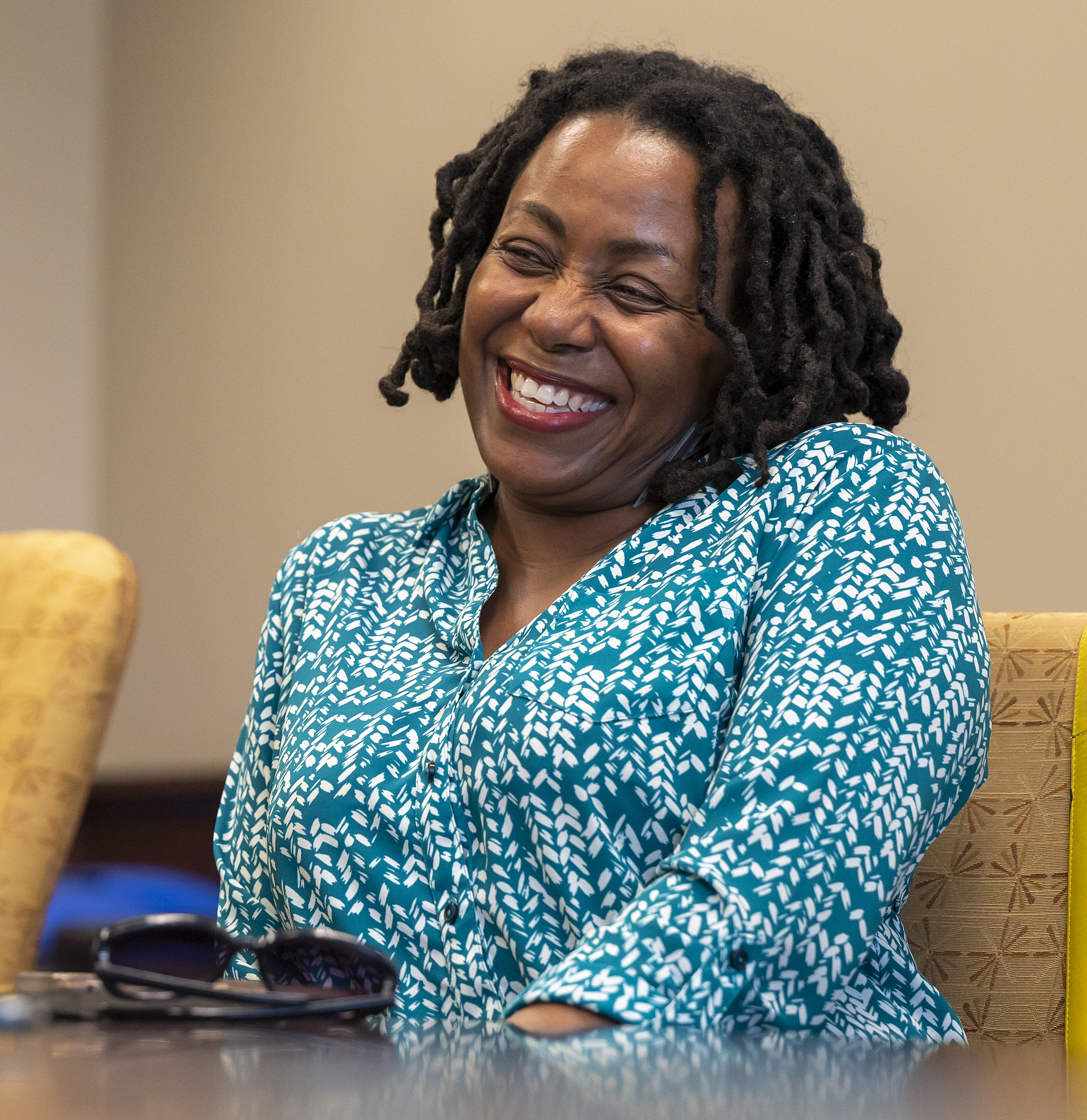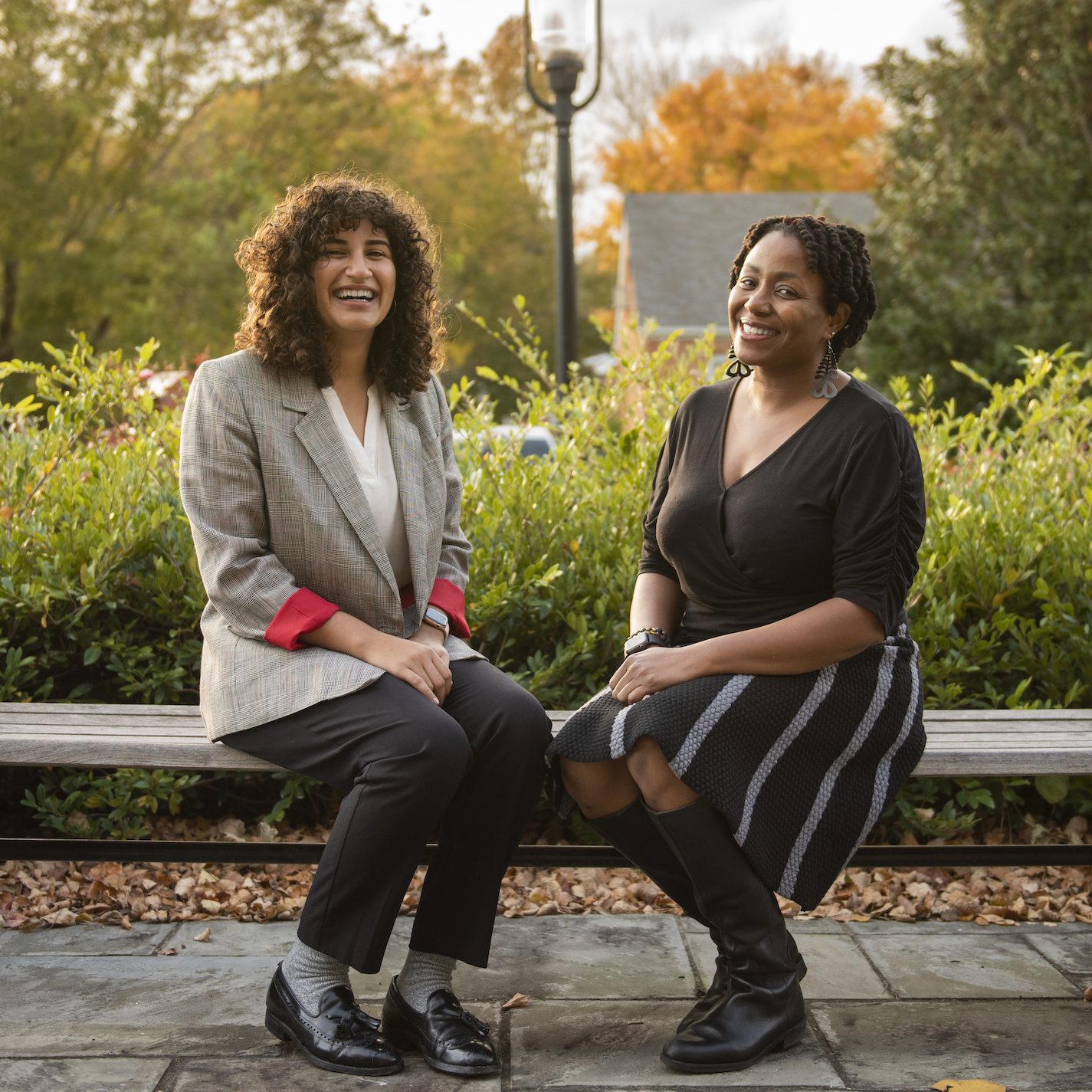Baker, an associate professor of public health, speaks on her community activism efforts and being committed to creating change through her research.

The Kernodle Center for Civic Life is committed to providing and teaching students about the wide array of service opportunities available to them. The center aims to share the impactful service experiences of students and faculty alike, encouraging others to be active members of their community.
In highlighting a faculty member who is committed to creating change through research, service and leadership, Associate Professor of Public Health Stephanie Baker is a shining example.
Baker has devoted herself to anti-racism work in all aspects of her life. After graduating from UNC-Chapel Hill with a Ph.D. in health behavior, Baker began shifting to her focal area of anti-racism organizing after attending a training about it in Chapel Hill and becoming committed to that work. She then connected with people in her hometown of Durham who also attended those trainings and they began organizing workshops there.
“Then I thought, ‘Well, if I’m going to do this outside of work, I can do this inside of work too,’” Baker said, “My research, my practice, my teaching, my service … I’m always using an anti-racism lens.”
Through shifting this organizing into her work, Baker also joined a community-academic medical partnership called the Greensboro Health Disparities Collaborative. There she began learning about authentic partnerships, power sharing/shifting, and community-based participatory research which has evolved into her work today.
“I use community-based participatory research approaches and an anti-racism racial equity lens to address health inequities, mostly. But all types of inequities are connected and related,” Baker said.
In speaking on where her passion for service stems from, Baker reflected on her ideas around volunteer work throughout her life and how said ideas have changed to focus on the root of the problem.
“As I was growing up, I was always taught to have a service-oriented soul,” Baker said, “But when I went to that training, I started to get a better understanding of the benefits of volunteerism and the downfalls of volunteerism.”
She continued to speak about how most volunteering “doesn’t actually shift power so that people don’t need volunteers anymore.” She originally thought that volunteering was the end-all-be-all of service, but after much reflection and learning, she has come to recognize that while helping in the moment is needed, organizing, shifting power and resources, centering the people most impacted by problems, and creating transitional spaces in our society will free people of their problems indefinitely.

“It was hard for me to deal with the fact that I had spent so much time and energy doing that when I could have been doing both. I could have been giving people what they need while I was also keeping my eye on the foundation of why the problem exists in the first place,” Baker said.
Further in Baker’s career, when she started working with the Greensboro Health Disparities Collaborative, she learned a way to both help in the immediate and focus on the root of the problem through community-based participatory research (CBPR).
“It requires shared learning, shared capacity building and shared power at every stage. In its purest form, CBPR involves all partners from the very beginning to the very end,” Baker said, “First, we look at community assets and strengths. Then we think about what the community needs and the community tells us that.”
She explains that CBPR is an approach to research that centers on partnerships of academics, agency representatives and community members who have lived experiences with the issues at hand. In this research, it is important to have diverse and differently educated perspectives at the table and not to discourage one or the other.
“It is not about being an expert in any particular topic. It is about having an expertise and approach to valuing strengths, challenges, partnerships and collaborations to come together to fix an issue,” Baker said.
Baker’s work goes far beyond Durham as well. In 2016, an Elon alum invited Baker to be on a steering committee to address the issue of racial disparities in infant mortality in Alamance County. Baker took this opportunity to get to the root of the problem and not be a part of something that was looking for a “band-aid solution.”
“I said, ‘If we are going to get real about these racial inequities then we need to bring the Racial Equity Institute here and do that two-day workshop so that we can have a shared analysis of where this is all coming from,” Baker said.
With that, Baker and the committee brought the first phase of the racial equity workshop to Alamance County in the spring of 2016.
“And that effort grew into what is now called the AREA, the Alamance Racial Equity Alliance, and they continue to organize and bring workshops, trainings and create space for conversations for folks in Alamance county,” Baker said.

After all of these incredible accomplishments in organizing and creating change in these spaces, Baker has stepped back from Alamance County to allow it to continue to grow. In this time, she had become available to accept students as mentors in her research efforts.
“I am always open to having students who are interested in using a racial equity lens and community engagement to address pretty much any problem,” Baker said, “It can be creative movement or more traditional academic movement.”
Baker highlighted the Kernodle Center for being incredibly supportive of her various efforts in the community.
“Anything that I’ve ever needed they have been helpful in helping me figure out how to do it. And to have that type of support, especially as a young faculty member has been crucial. Building community partnerships take a significant amount of time, effort and energy, and they have been nothing but supportive to me,” Baker said.


